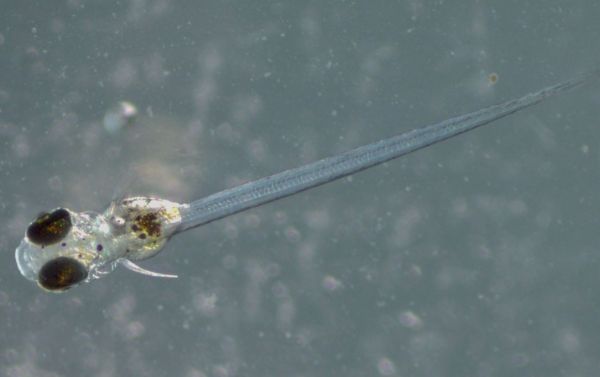Warmer water temperatures, combined with low-level exposure to chemicals already known to be harmful to aquatic life, influence the expression of genes in the offspring of an abundant North American fish species – and threaten organisms whose sex determination is sensitive to water temperature.
The finding is published in the online journal PeerJ.
Previous, related research has shown these same exposures to endocrine disrupting compounds (EDCs) lead to exhibited altered sex ratios, lower fertility rates and deformities in inland silversides (Menidia beryllina).
In the PeerJ study, exposure to the insecticide bifenthrin didn’t cause adverse effects and changes in gene expression in the fish until the second generation.
“This means the cells that are created prior to becoming sperm or egg are sometimes more susceptible to EDCs,” said the study’s lead author, Bethany DeCourten, a doctoral student at Oregon State University. “The full extent of adverse effects caused by a combination of exposure to elevated temperatures and common chemicals may not be fully realized by short-term or single generation testing in fish, which is currently how regulatory decisions are made.”
Read more at Oregon State University
Image: An inland silverside fish three days after hatching from the egg. Photo by Nathan Burns. CREDIT: Oregon State University


